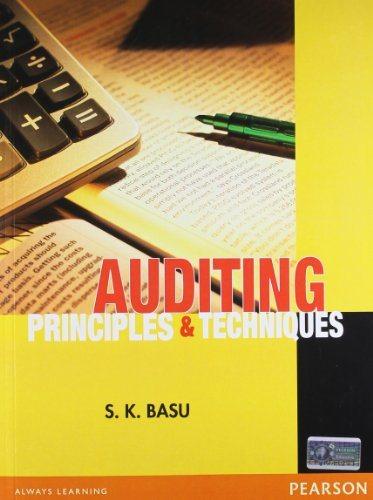State which of the following statements are true: (a) If capital expenditure is treated as revenue expenditure
Question:
State which of the following statements are true:
(a) If capital expenditure is treated as revenue expenditure the profit for the year is understated, but in the long run, because of depreciation, there is no effect on profit.
(b) Revenue expenditure includes loss arising from an event beyond one’s control.
(c) An expenditure which is not capital is revenue.
(d) The rate of depreciation is not important since sooner or later the full cost of the asset is bound to be written off.
(e) Under the two different methods of depreciation, the straight line method and the diminishing balance method, the life assumed is different.
(f) Distinction between capital and revenue expenditure is relevant for short duration business.
(g) Expenditure resulting from the acquisition of tangible asset is capital even if there is no income from that asset.
(h) Interest included in hire-purchase price is also capital expenditure.
(i) Verification of assets means establishing their physical existence and ownership, but not their valuation.
(j) Trade investments are fixed assets.
(k) It is necessary to indicate the fact if an asset is acquired on hire purchase basis.
(l) Property let out on rent need not be depreciated.
Step by Step Answer:

Auditing Principles And Techniques
ISBN: 9788177581782
1st Edition
Authors: Sanjib Kumar Basu, Andrei Alexandrescu





